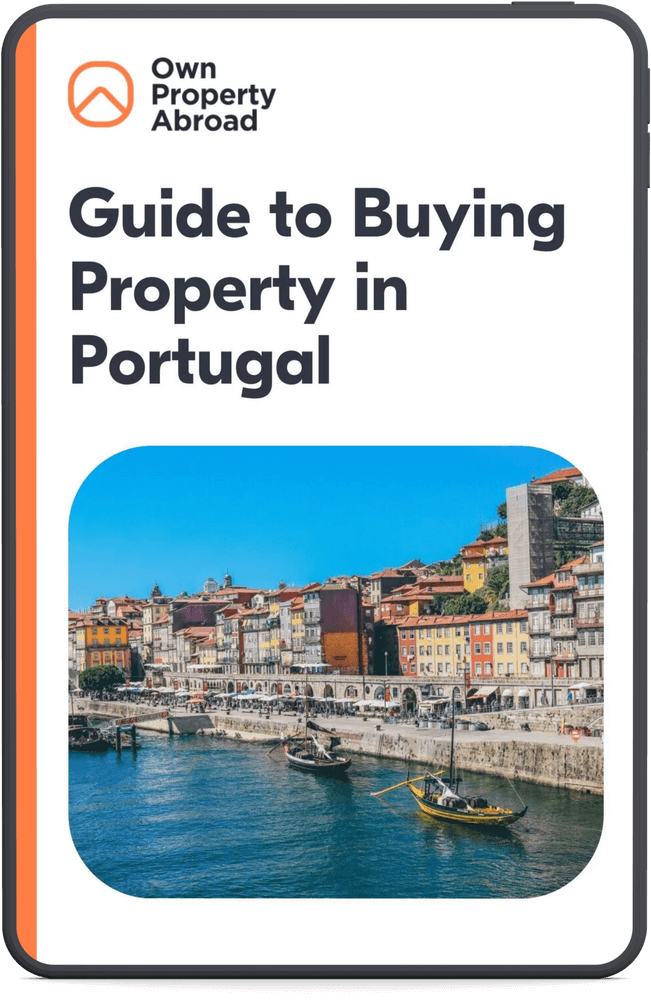Step 1: Understanding bank loans and mortgages in Portugal
It all starts with understanding bank loans and mortgages in Portugal.
What is a bank loan?
A bank loan is a lump sum of money borrowed from a financial institution, such as a bank, which is to be repaid with interest over a specified period. Loans can be used for various purposes, including purchasing real estate in Portugal.
What is a mortgage?
A mortgage is a specific type of loan designed for purchasing real estate. The property being purchased serves as collateral for the loan. If the borrower fails to make payments, the lender can take possession of the property through a legal process known as foreclosure.
Valuable insights and practical advice, distilled from years of expertise and real-world experience.


Step 2: Preparing for the application process
Before applying for a bank loan or mortgage, conduct a thorough assessment of your financial situation. Calculate your monthly income, expenses, and savings to determine how much you can comfortably afford to borrow.
Check your credit score
Your credit score plays a crucial role in the loan approval process. A higher credit score increases your chances of securing a favorable interest rate. Obtain a copy of your credit report and rectify any errors to improve your score.
Determine loan eligibility
Different banks have varying eligibility criteria. Research the minimum requirements for loan approval and ensure you meet them before proceeding with the application.
Step 3: Choosing the right lending institution
Thoroughly research various banks and financial institutions in Portugal. Compare their loan products, interest rates, and customer reviews to find a reputable lender that aligns with your needs.
Compare interest rates and terms
Interest rates can significantly impact the total cost of your loan. Compare the interest rates in Portugal offered by different lenders and understand whether they are fixed or variable. Consider the loan term as well; longer terms result in lower monthly payments but higher overall interest.
Seek professional advice
Consider consulting a financial advisor or mortgage broker in Portugal. Their expertise can help you navigate the complexities of loan options and find the most suitable deal.
Step 4: Gathering required documentation
There are several required documents you need to submit when applying for a mortgage or bank loan in Portugal.
Proof of identity and residency
Lenders require documentation proving your identity and legal residency status. This may include your passport, residence permit, and utility bills.
Proof of income
Provide evidence of your income, such as recent pay stubs, tax returns, and employment verification, to apply for a mortgage in Portugal.
Property information
If you’ve already identified a property in Portugal, gather relevant details, such as purchase agreement, property appraisal, and legal descriptions.
Step 5: Initiating the application process
Schedule a meeting with a loan officer at your chosen bank in Portugal. They will guide you through the application process and provide personalized advice.
Filling out the application form
Complete the loan application form accurately and provide all required documentation. Be transparent about your financial situation to ensure a smooth review process.
Step 6: Loan/mortgage approval and terms
Loan amount and interest rates
Upon successful application, the lender will determine the loan amount and applicable interest rates based on your financial profile.
Repayment period and monthly installments
Negotiate the repayment period and frequency of payments. Longer terms result in lower monthly installments, but you’ll pay more in interest over time.
Step 7: Legal and administrative procedures
The lender will assess the property’s value through an appraisal process to ensure it aligns with the loan amount. For this, prepare the legal documents and involve a notary in Portugal to oversee the loan agreement signing. Many lenders require property insurance as a safeguard against potential damages, so ensure to find property insurance that suits your circumstances.

Step 8: Signing the agreement and disbursement
Thoroughly review the loan terms and conditions before signing the agreement. You can use a notary or legal agent to help you. Make sure to sign the agreement in the presence of a legal representative or notary in Portugal.
Once the agreement is signed, the lender will disburse the funds, and you can proceed with the property purchase.
Step 9: Managing your loan/mortgage
Develop a repayment strategy that aligns with your financial goals. Making extra payments can help reduce the overall interest paid.
Dealing with changes in financial situation
If your financial situation changes, contact your lender to discuss possible solutions, such as refinancing or loan modification.
Choosing a Bank in Portugal
When seeking a loan or mortgage in Portugal, foreigners have a range of banks to choose from. These institutions offer various financial solutions tailored to meet the needs of non-residents. Below are some of the prominent banks that foreigners can consider for securing a loan or mortgage:
- Activo Bank
- Banco BPI
- Banco N26
- Banco Santander Totta
- BNP Paribas
- Caixa Geral de Depósitos
- Credit Agricole
- Millenium BCP
- Novo Banco
There are also many international banks in Portugal, like Barclays, ING Bank, Deutsche Bank, BNP Paribas, and BBVA. If you’re from a country where these banks have a presence in Portugal, you might be able to use your local branch.
To pick the right bank for you, research different options. Compare the features and services they offer. Also, check out what customers say about them and learn about their reputation. This will help you find the best bank that suits all your needs.
Buy property in Portugal with Own Property Abroad
Do you want to buy property in Portugal? Own Property Abroad can assist you and ensure a seamless and hassle-free property journey, whether selling or buying real estate in Portugal. Thanks to our knowledge and experience in the local market, we can help with legal requirements, finding suitable properties, negotiating the best deals, and conducting due diligence.
With our expert team, you won’t have to navigate the complexities of the Portuguese real estate market alone. For further information on how we can assist you, kindly drop your details below or email us at [email protected]. Let’s start working on your property success story today!
Valuable insights and practical advice, distilled from years of expertise and real-world experience.


Frequently Asked Questions (FAQs)
Is it possible for a foreigner to get a mortgage in Portugal?
Yes, foreigners can obtain mortgages in Portugal, although certain conditions apply. Non-residents typically have access to financing for up to 70% of the property’s value, while residents might qualify for higher loan-to-value ratios. Lenders usually assess applicants’ creditworthiness, financial stability, and repayment capability.
What is the typical down payment required in Portugal?
The down payment in Portugal typically ranges from 10% to 30% of the property’s value, providing you with flexibility based on your financial preferences and the specific terms offered by different lenders. This initial investment plays a crucial role in shaping your overall mortgage structure and monthly payments, so it’s essential to weigh your options carefully and align them with your long-term financial goals.
Can I choose between a fixed-rate and variable-rate mortgage?
Yes, both fixed-rate and variable-rate mortgages are available in Portugal. A fixed-rate mortgage offers stability and predictability with consistent monthly payments throughout the loan term. On the other hand, a variable-rate mortgage may provide initial lower payments but can fluctuate based on market conditions. It’s crucial to carefully consider your financial situation and risk tolerance before making a decision.




